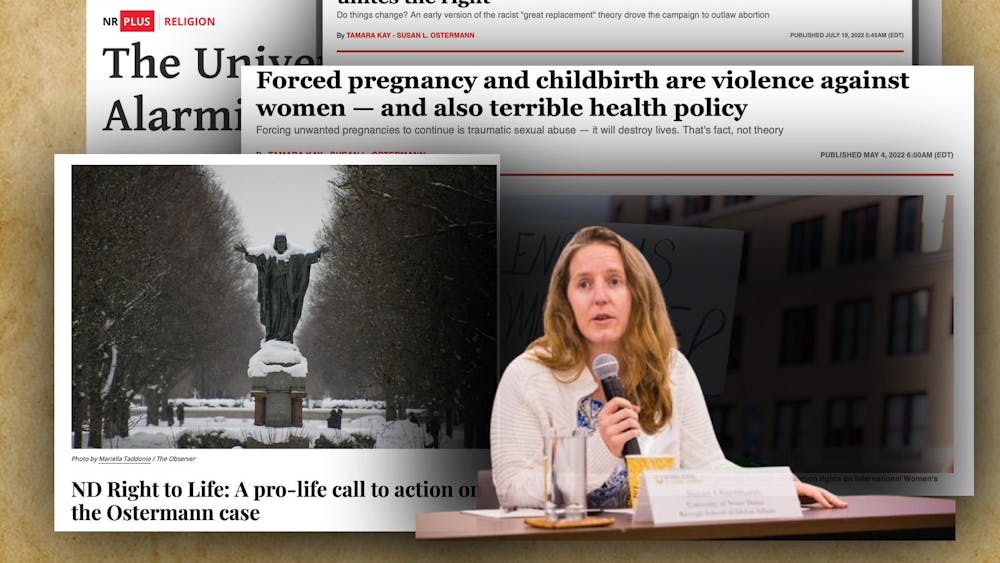On Feb. 14, a mass shooting occurred at Marjory Stoneman Douglas High School in Parkland, Florida. Seventeen people were killed. It was the eighth school shooting this year to result in injury or death, an event that has become distressingly common in the United States. But unlike other shootings, this one has not faded from the news. The students of Parkland are not allowing it to. Despite their efforts, however, the usual crop of arguments against gun control in America have risen up against them. Here’s my response to the ones most frequently employed.
“If we make it harder to get guns, the only people who will have guns will be criminals.”
Statistics prove that stricter gun laws lead to fewer shootings. This does not happen in the United Kingdom. It doesn’t happen in Korea. It doesn’t happen in Canada, or Australia or Japan. It happens exclusively in the United States. In fact, America’s gun homicide rate is 25.2 times higher than that of other high-income countries.
A study by the Center for Disease Control, National Rifle Association-Institute for Legislative Action, and Law Center to Prevent Gun Violence proved that the states with the most stringent gun laws (Massachusetts, Hawaii) had a firearm death rate-per-100,000 nearly eight times lower than those with the loosest (Alaska, Alabama), with those rates being 19.8 compared to 2.5. These are not coincidences. These are facts. Guns kill less people when it’s harder to get one.
“If we ban guns, they’ll simply find another way to kill people.”
Then they can try. They can try to murder 17 children with a knife. They can try to drive a truck through the corridors of a school. They can try to do all the necessary research, buy all the necessary materials and garner all the scientific knowledge needed to build an effective bomb. If they do all this, then yes, they’ll still be able to kill people. But let’s not give them guns. Let’s not make it easy.
“We need more, not less, guns. We should put armed guards in schools or arm the teachers.”
There was an armed guard at Parkland. He heard the shots. He knew there was an active shooter on the campus. And he wasn’t able to prevent anything. The 2009 Fort Hood shooting — which killed 13 on an active military base — demonstrates that even when trained professionals are caught off guard, they can be killed. Teachers have no firearm training. They cannot be expected to engage and disarm a shooter. And even if they could, school shooters are not rational. The threat of others with guns will not prevent them from deciding to carry out a mass murder.
“I have the Second Amendment right to own a gun.”
“I am not an advocate for frequent changes in laws and constitutions, but laws and institutions must go hand in hand with the progress of the human mind. As that becomes more developed, more enlightened, as new discoveries are made, new truths discovered and manners and opinions change, with the change of circumstances, institutions must advance also to keep pace with the times. We might as well require a man to wear still the coat which fitted him when a boy as a civilized society to remain ever under the regimen of their barbarous ancestors.”
Those aren’t my words. Those are Thomas Jefferson’s. Yes, you do have the Second Amendment right to own a gun. But the world has changed since 1791. Every citizen is no longer required to serve in their local militia and receive extensive firearm training. The Founding Fathers could not have anticipated average Americans owning semi-automatic rifles; they could not have anticipated bump-stock modifications that allow an AR-15 to fire 600 rounds per minute and kill 58 in Las Vegas. We couldn’t have expected them to.
“I want to own a gun to hunt and protect my family.”
And you should be able to. I’m saying you don’t need a semi-automatic rifle to do so. I’m saying you should have to go through background checks. I’m saying you should need a permit. I’m saying you should have to register your gun.
I understand that there are law-abiding Americans who own guns. The problem isn’t every gun owner. It isn’t people who like to hunt. But it isn’t mental health or violent video games, either. The problem, without argument, is guns. The problem is how easy it is to get a gun. The problem is that there were 590 mass shooting deaths in America in 2017 alone. The problem is that every year, there are 13,000 gun homicides in the United States. The problem is that innocent people are dying.
The problem is guns. And it’s not going to end until we acknowledge that.
Patrick McKelvey splits his time between being a college sophomore and a grumpy old man. A New Jersey native and American studies major, he is interested in a legal career after graduating Notre Dame. If you can’t find him at the movies, he can be reached for comment at pmckelve@nd.edu
A response to arguments against gun control
The views expressed in this column are those of the author and not necessarily those of The Observer.









